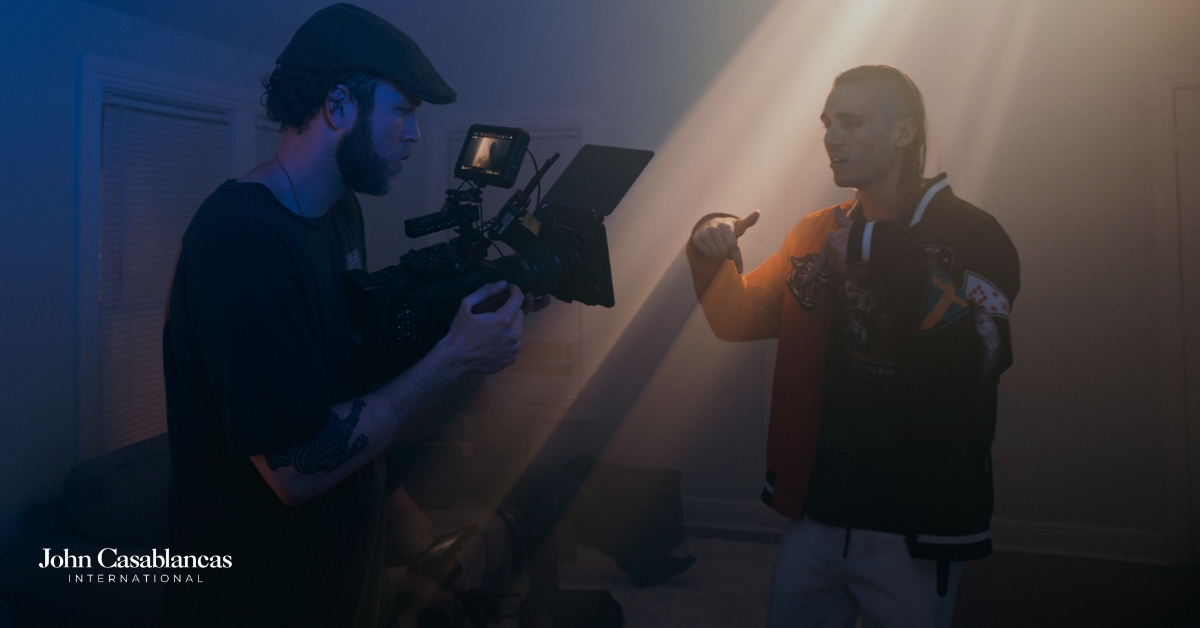Embarking on the journey of songwriting is like traveling toward a new horizon — mysterious, exciting, and sometimes difficult. But don’t let the challenges scare you off. If you’re wondering how to write a song, remember that every great songwriter was once a beginner, clutching their first pen or strumming their first chord.
Whether you want to express deep emotions, share a story, or just create something catchy, this guide will walk you through the fundamental steps to transform your musical ideas into a fully formed track.
1. Think About the Mood or Message You Want to Convey
Every song has a soul shaped by the mood or message it carries. Start by asking yourself: What fires you up? What sentiment do you want to share with the world? Whether it’s a story of heartbreak, a battle cry for freedom, or a ballad to a beautiful memory, identifying what you feel passionate about can be the spark that sets your songwriting journey ablaze. This is the first step in learning how to write a song.
2. Choose a Song Structure
Structuring your song is like constructing the bones of a building. Most songs follow traditional musical formats like verse-chorus-verse-chorus-bridge-chorus. This structure is popular because it balances repetition and new content, making a song catchy yet dynamic. Experiment with different structures to find what best serves your song’s message and atmosphere.
3. Play with Melodies for the Verses and Chorus
The melody is the heartbeat of your song. Start with your instrument of choice and play around with notes that match the emotions you want to evoke. The verses should carry the story forward, while the chorus needs to be memorable — think of it as the climax of your musical story. If you’re feeling blocked, just hum, strum, or hit keys randomly; sometimes, the best melodies come when you least expect them and help teach you how to write a song.
4. Develop Lyrics That Support the Feeling of the Music
With your melody in place, it’s time to weave in the lyrics. Your words are powerful tools that can deepen the song’s emotional impact. Write from your experiences, your dreams, or your observations. The best lyrics often come from a personal place, resonating more deeply with both the writer and the audience. Above all else, make sure your lyrics flow well with your melody; each syllable should naturally fit with a musical note.
5. Revisit What You Have So Far — Then Tweak and Iterate
Songwriting is a process of creation and re-creation. Play what you’ve developed so far, and listen. Does it move you? Does it convey the message and emotion you intended? Don’t hesitate to tweak your lyrics, adjust your melodies, or even scrap parts that aren’t working. This stage is about refining and polishing your song until every chord and every word feels right.
6. Add Harmonies, Effects, and Finishing Touches
Once your song has a solid structure and emotional depth, consider adding harmonies and effects. Harmonies can enrich the vocal lines, while effects like reverb or echo can enhance the overall sound without overpowering the raw emotions of the lyrics. These elements should complement the song, not complicate it.
7. Settle on a Title
You may have had a working title in place while building your track, but now it’s time to commit. Your song’s title is often the first impression it makes, so choose one that captures the essence of the music and lyrics. It doesn’t have to be a phrase from the chorus (though that’s often effective); it just needs to reflect the core theme or emotion of your song compellingly.
Hone Your Creativity with John Casablancas
If you’re serious about songwriting, consider honing your skills with formal training. The experts at John Casablancas can provide you with the tools, techniques, and industry insights needed to refine your craft, discover how to write a song, and how to launch your music career. From developing confidence and stage presence to opening doors and networking, John Casablancas can help turn your musical aspirations into so much more.
Ready to get started? Just contact the John Casablancas team today!



